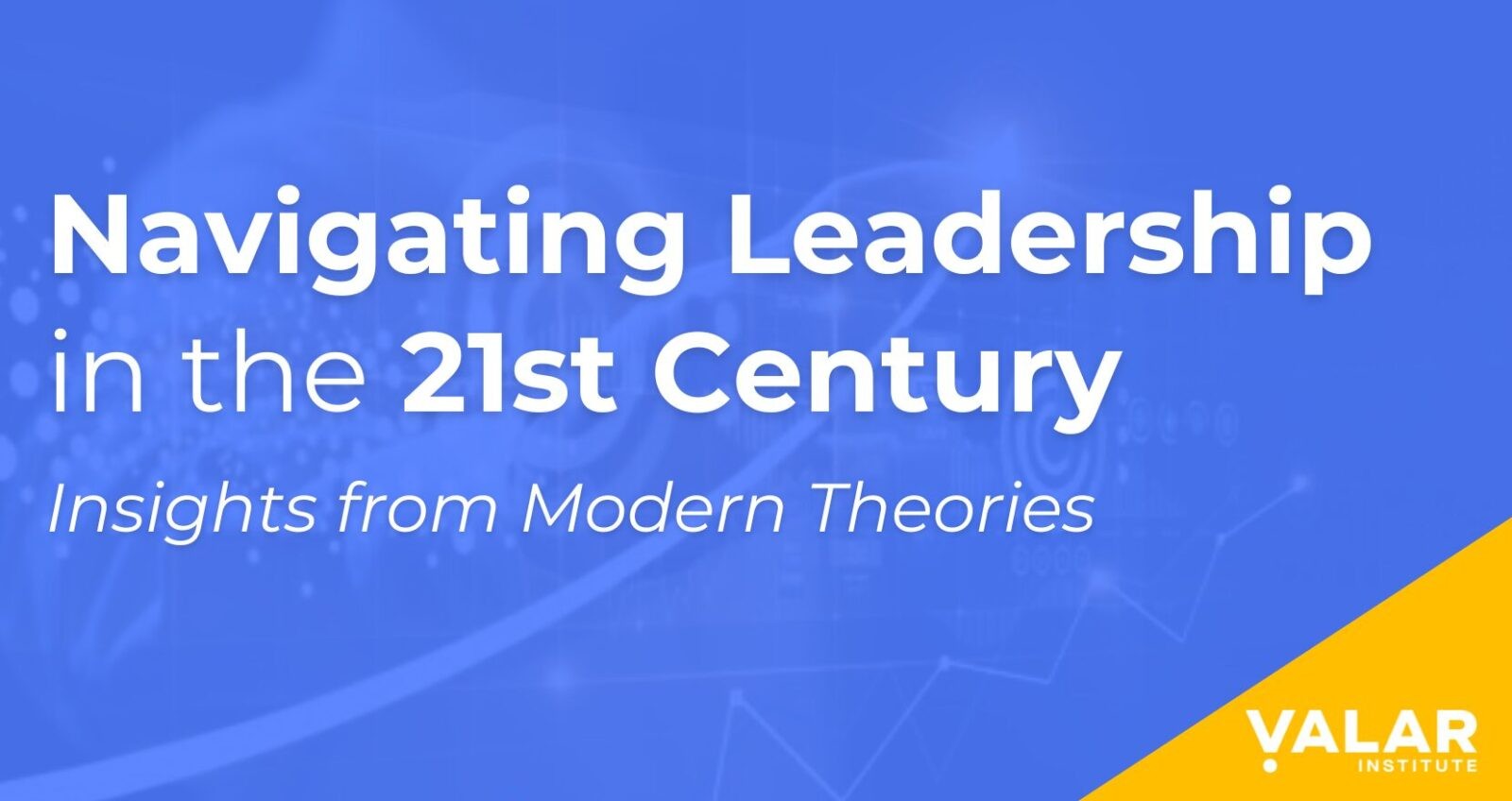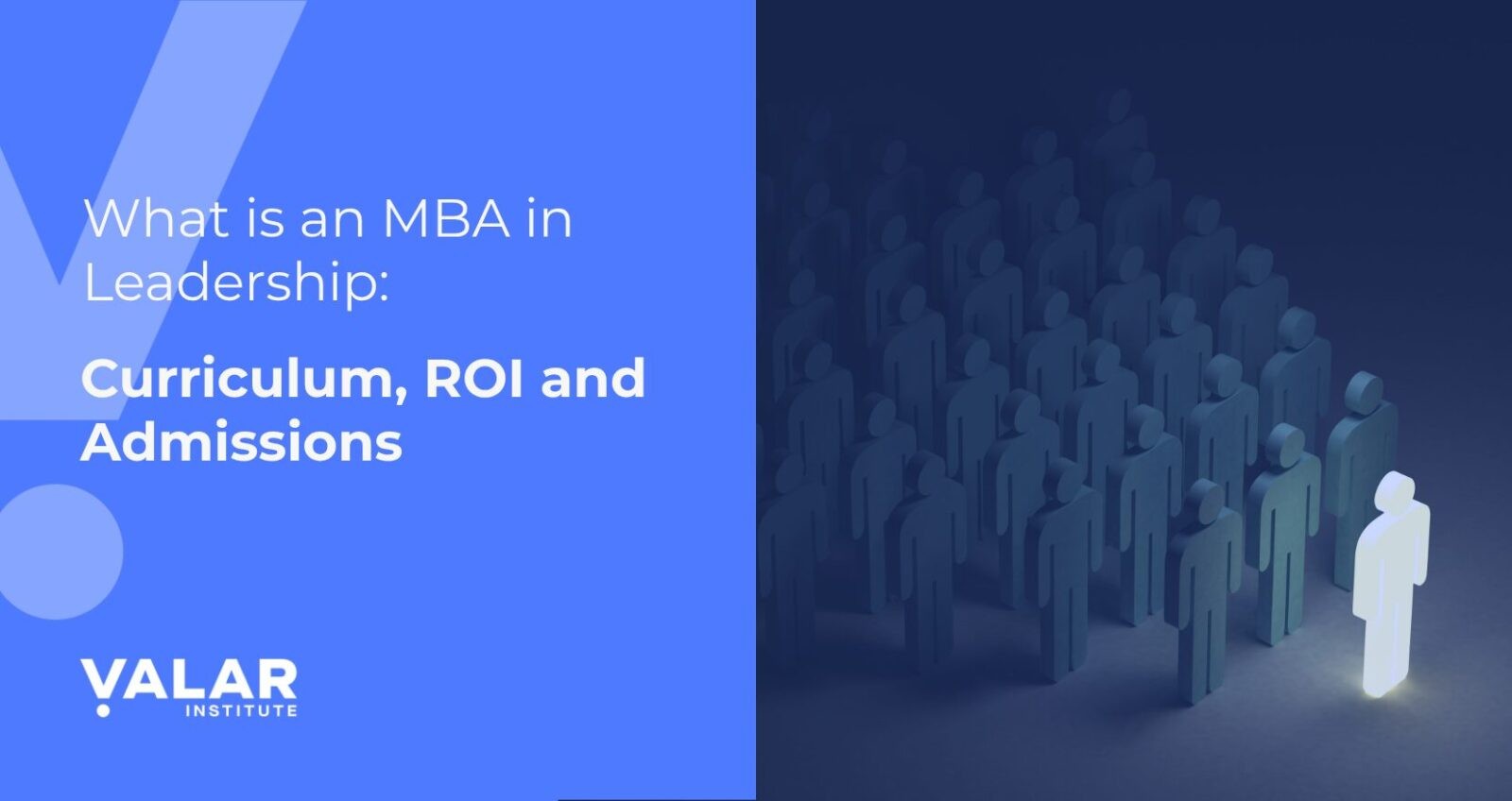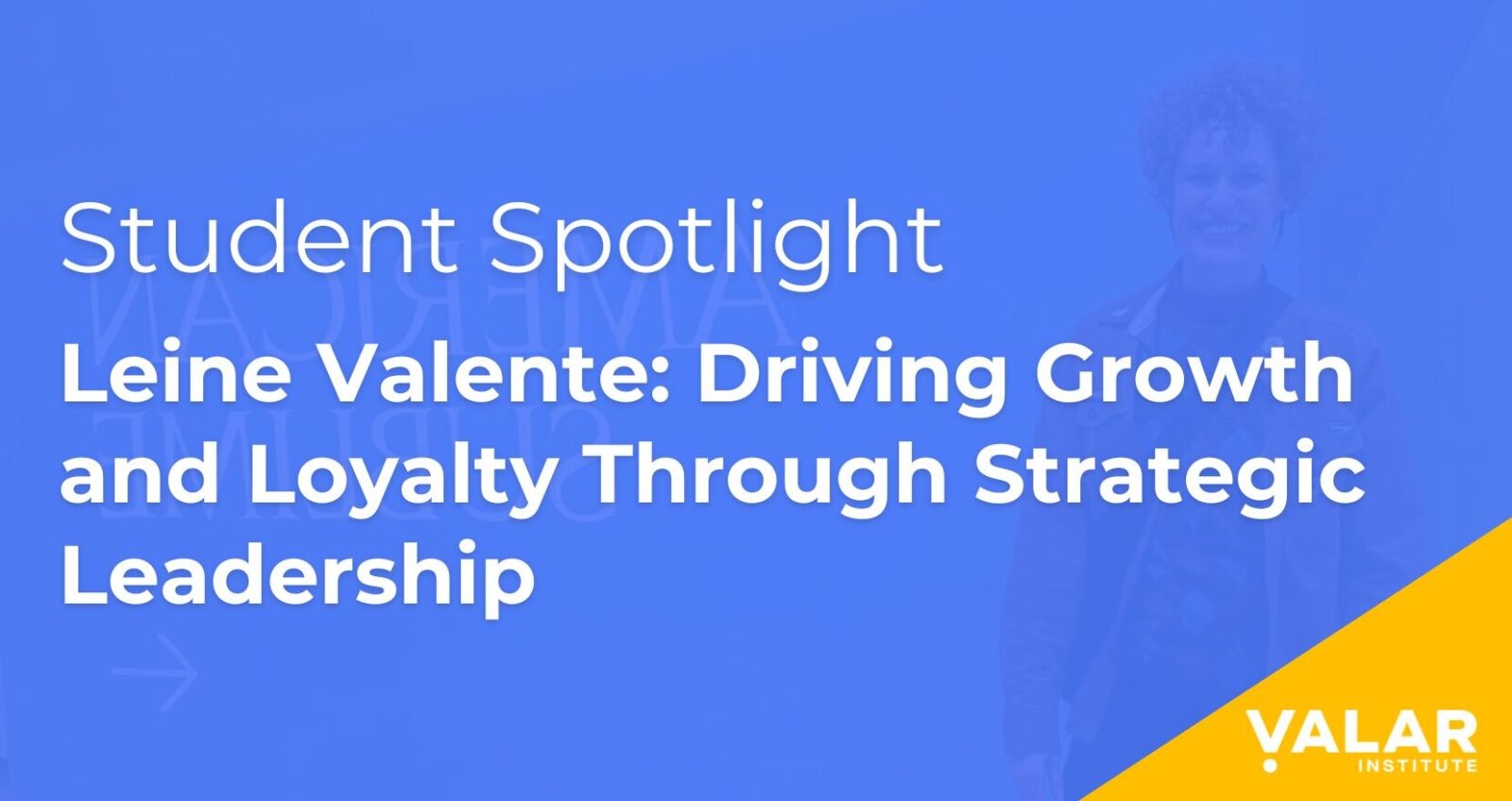Leadership
2025 Leadership Insights from Modern Theories
November 12, 2024
In the dynamic, tech-driven business landscape of the 21st century, Leadership Insights from Modern Theories offer critical guidance for navigating complexity and building inclusive, agile, and high-trust teams. At the same time, leaders today are challenged not only to steer through rapid technological shifts, but also to foster inclusive, collaborative, and agile teams, creating high-trust environments that drive lasting growth. Dr. Sara Alshareef, Valar’s Leadership and Entrepreneurship Subject Matter Expert, explains how Leadership Insights from Modern Theories provide valuable guidance for those eager to inspire with vision and adapt strategically to diverse challenges.
Leadership Skills are Learned Abilities, Not Inherited Traits
Earlier trait-based theories proposed that leadership relied on specific “innate” characteristics, such as charisma or confidence. As a result, these attributes were thought to be inherent, leading to the popular belief that “leaders are born, not made.” On the contrary, today’s view, as outlined in Valar’s Strategic Leadership curriculum, sees effective leadership as a set of adaptive skills, rather than fixed traits, that can be learned and applied dynamically from modern theories.
As Dr. Alshareef explains, “Effective leadership today is less about a singular ‘ideal’ and more about leveraging personal strengths to build genuine connections, driving collective ambition and growth. Consequently, these Leadership Insights from Modern Theories empower leaders to adapt and thrive in diverse professional environments.” This shift toward learned, inclusive leadership paves the way for diverse professionals to excel and evolve in leadership roles.
Leadership is an Adaptive, Collaborative Process
Modern theories no longer focus solely on the leader’s traits. Instead, leadership is viewed as a relational and situational process. In addition, Dr. Alshareef emphasizes that leadership is not simply about the actions of a single individual. Rather, it’s a dynamic interaction between leaders and followers. Moreover, context, behavior, and team dynamics all play a role in how leadership is enacted and experienced within organizations, offering insights from modern theories.
“In today’s world, effective leadership is co-created—it’s not just about the leader’s influence. It’s also about building a shared vision and motivating team members to contribute their best,” Dr. Alshareef explains.

This “process” approach encourages leaders to be adaptable and to view leadership as something that shifts and evolves depending on the needs of their followers and the demands of their environment. It fosters a collaborative atmosphere where leaders work alongside their teams, fostering a culture of mutual respect and shared goals gained from modern theories.
Building Trust with the (LMX) Theory
The LMX (Leader-Member-Exchange) Theory posits that trust and engagement are essential for high-performance teams. For instance, strong relationships develop when leaders involve team members in decision-making and provide constructive feedback. As a result, this fosters a sense of purpose and inclusion that inspires each team member to excel while offering Leadership Insights from Modern Theories.
Dr. Alshareef explains that leaders can foster these high-quality interactions to build trust and loyalty. “Strong leader-follower relationships create a powerful sense of belonging, motivating people to go above and beyond in their roles,” she notes.
Leaders can therefore use LMX Theory to build engagement by actively involving team members in decision-making, setting clear expectations, and providing consistent, constructive feedback. With this approach, leaders can create a more cohesive, motivated team where everyone feels valued and gains Leadership Insights from Modern Theories.
Transforming Theory into Practice for Strategic Impact
Valar’s programs bridge the gap between leadership theory and practice. Specifically, they train leaders to think strategically, lead adaptively, and deliver on long-term goals. Furthermore, by combining rigorous, AI-driven curriculum with peer-based projects and international networking events, Valar’s MBA and Executive MBA graduates gain Leadership Insights from Modern Theories while developing practical tools to navigate real-world challenges. As Dr. Alshareef summarizes, “True leaders do more than guide; they journey alongside their teams, learning and adapting together for a future-focused impact.” At Valar Institute, students don’t just learn the theories; they apply them, leading through change, inspiring innovation, and driving results across industries and borders.
Valar’s leadership programs equip professionals to redefine success in today’s fast-evolving, interconnected world of work. With lifetime access to cutting-edge content, a global network, and a curriculum focused on practical applications, Valar graduates are empowered to transform organizations and shape the future of business leadership with insights from modern theories.
Curious about how Valar Institute has transformed the careers of professionals worldwide? Take a moment to read the Valar reviews by students and alumni to see how they’ve gained Leadership Insights from Modern Theories, achieved their career goals, and built lasting professional networks.
Valar Institute is a Division of Quantic School of Business and Technology, which is licensed by the District of Columbia Higher Education Licensure Commission in Washington, DC and accredited by the Distance Education Accrediting Commission (DEAC). The DEAC is listed by the United States Department of Education as a recognized accrediting agency and is also recognized by the Council for Higher Education Accreditation (CHEA).
More on the Valar Blog:



